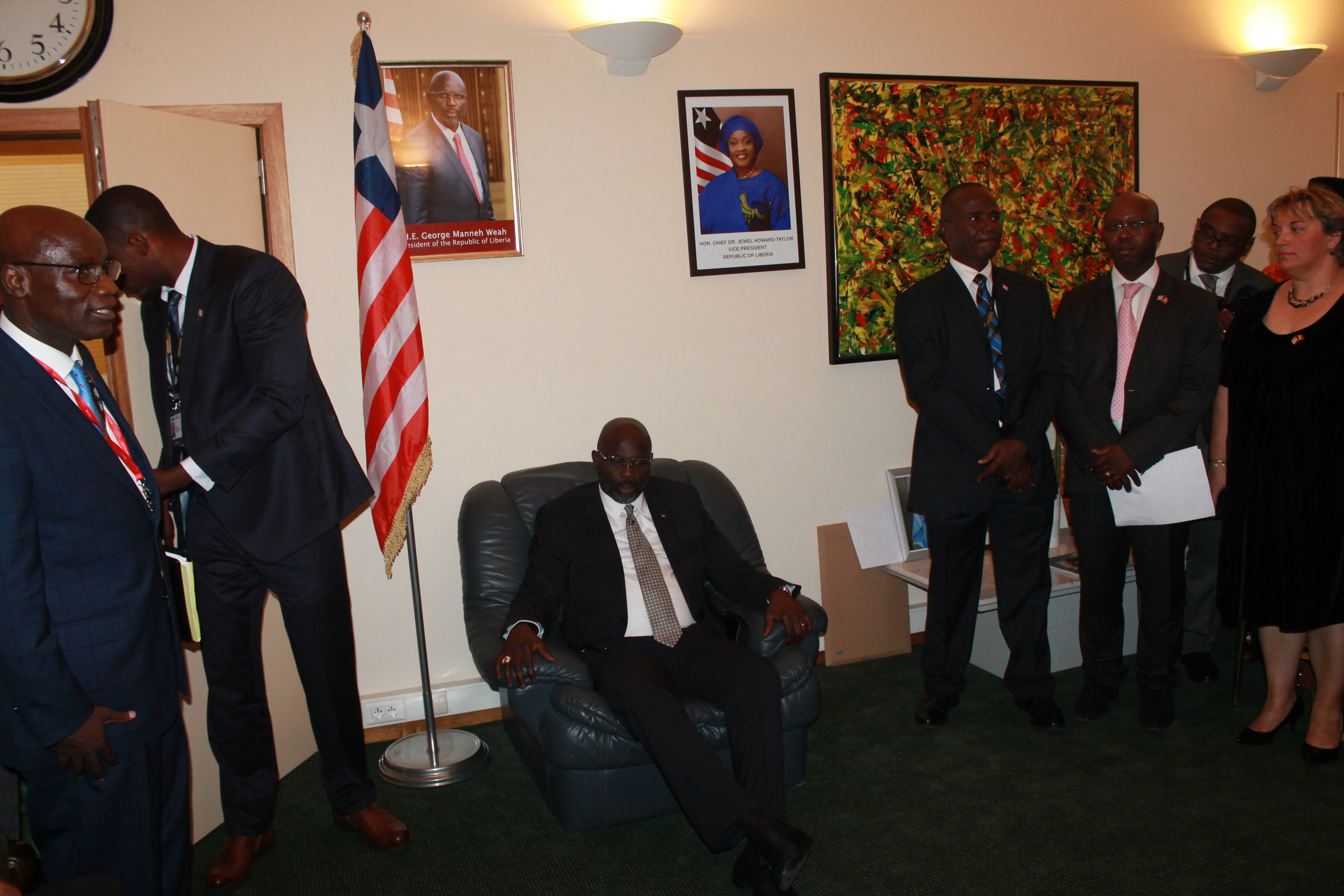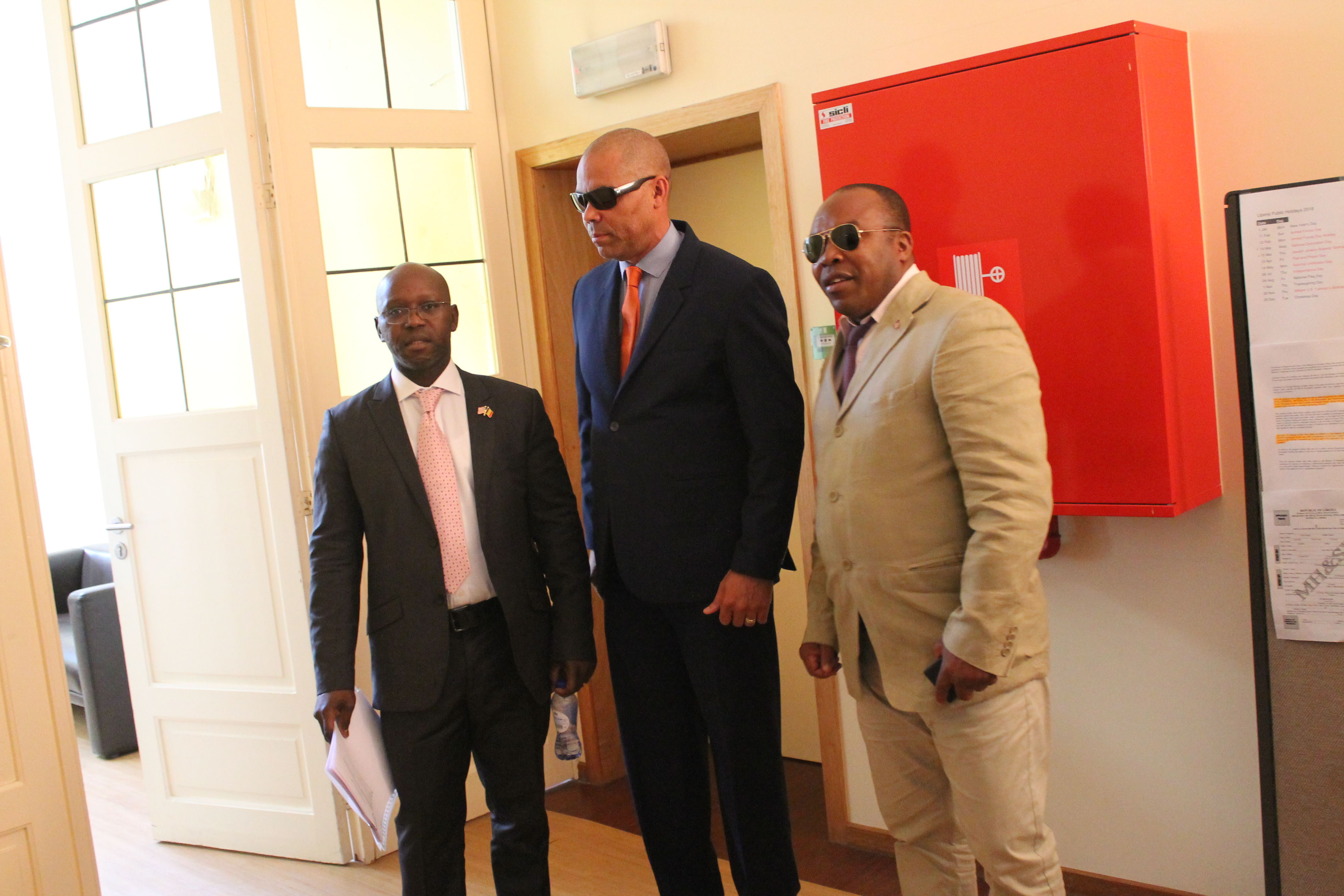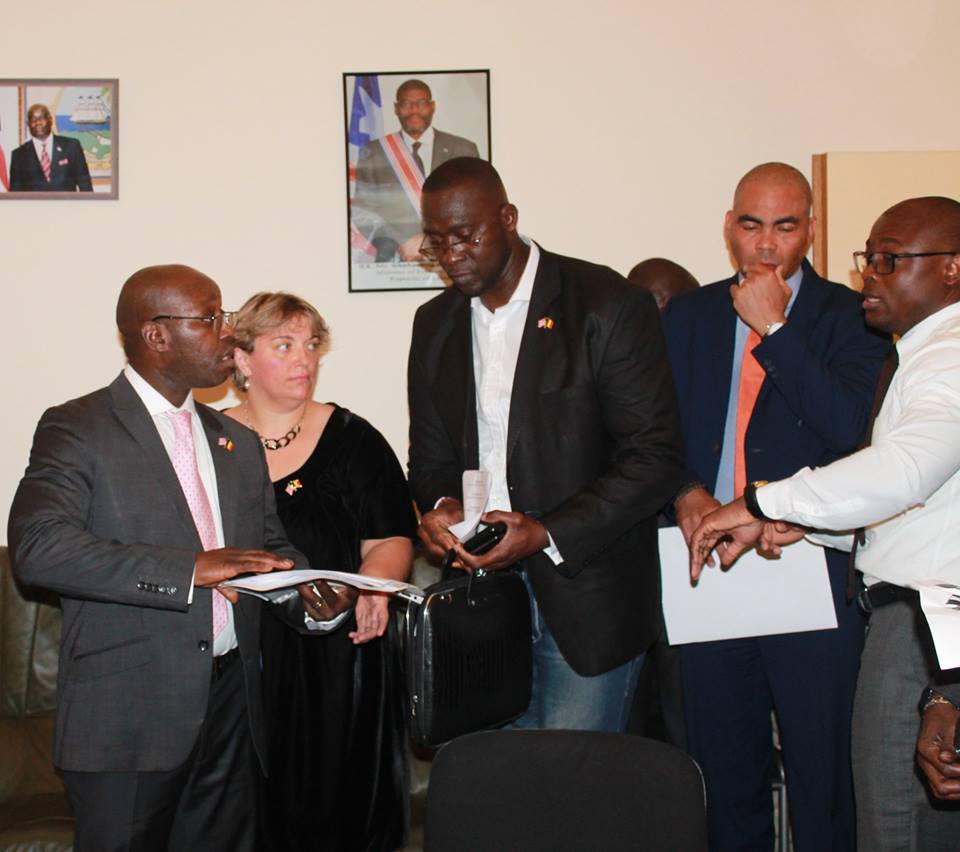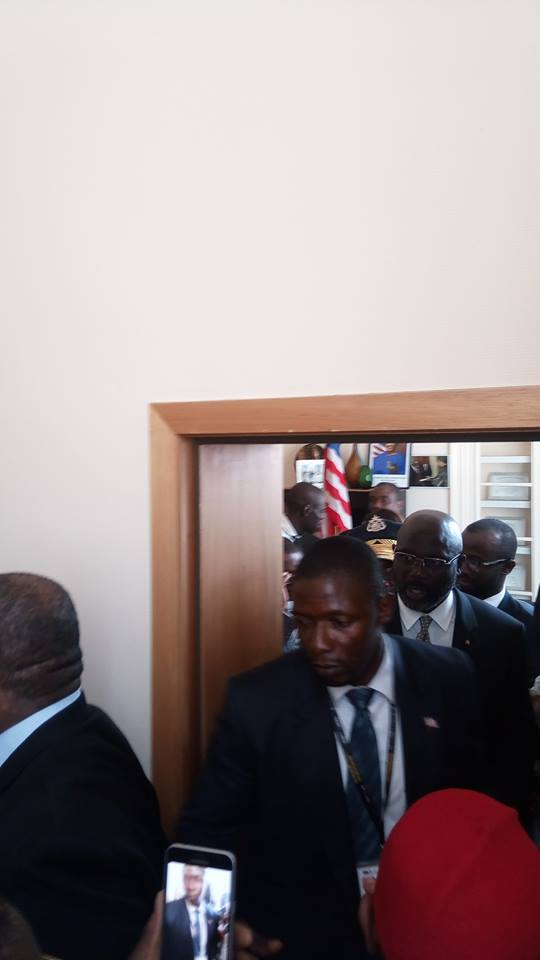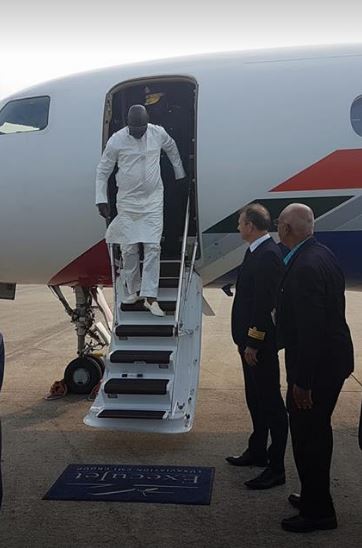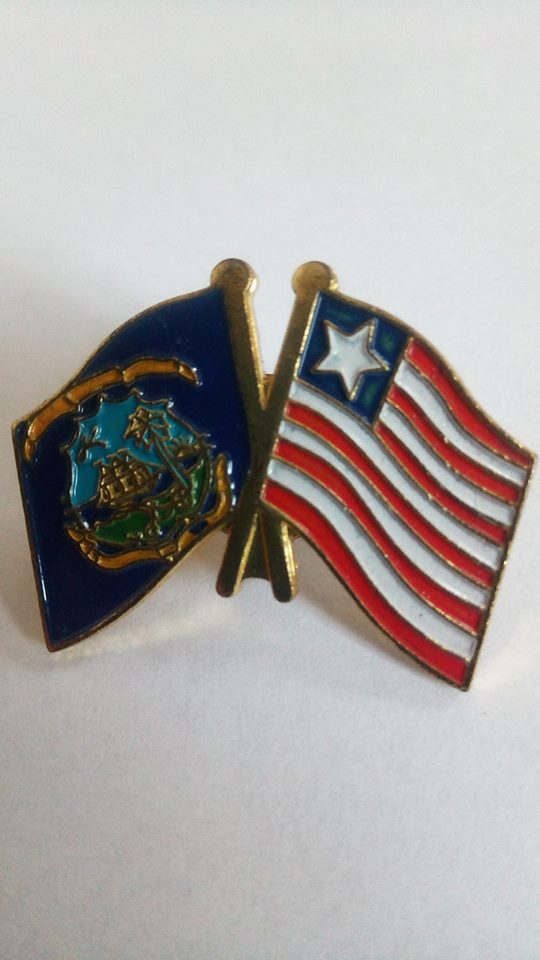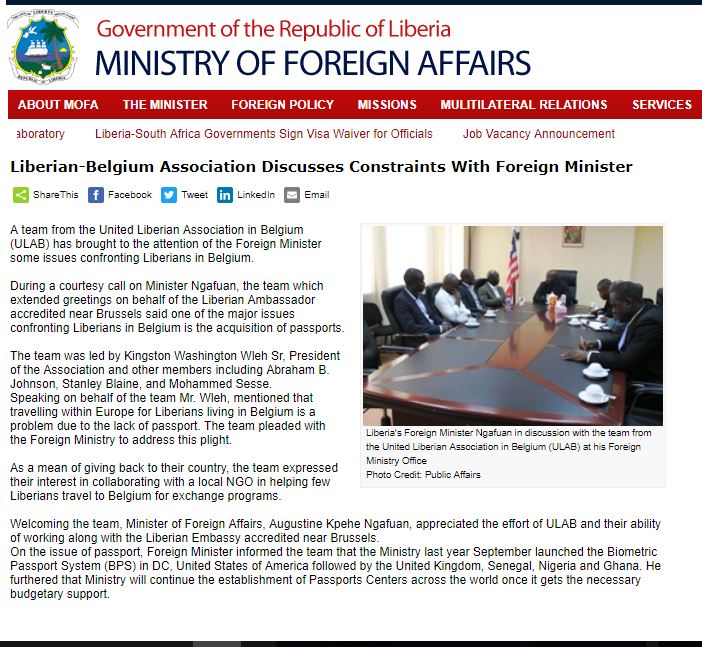The symbolic and cultural significance of the Liberian flag is linked to country’s history.
In 1822, the American Colonisation Society (ACS) initiated the colonisation of Liberia. The ACS believed that formerly enslaved African-Americans residing in the United States would find improved living conditions, prosperity, and freedom in Africa. Between 1822 and 1861, thousands of freed and free-born black slaves from the United States and the Caribbean established a new existence and nation, which is now known as The Republic of Liberia.
The Liberian flag soon emerged as a new symbol of power and hope. The original flag of Liberia was introduced on April 9, 1827.
The flag was based on the flag of the United States, as Liberia was still an ACS colony at the time. Its flag contained 13 red and white horizontal stripes. Red represented courage and white signified national confidence. In the upper lefthand corner, there was a blue square that contained a white cross. The blue canton symbolized the native lands of black Africans. The cross represented Christianity, as it was the religion of those who controlled the colony.
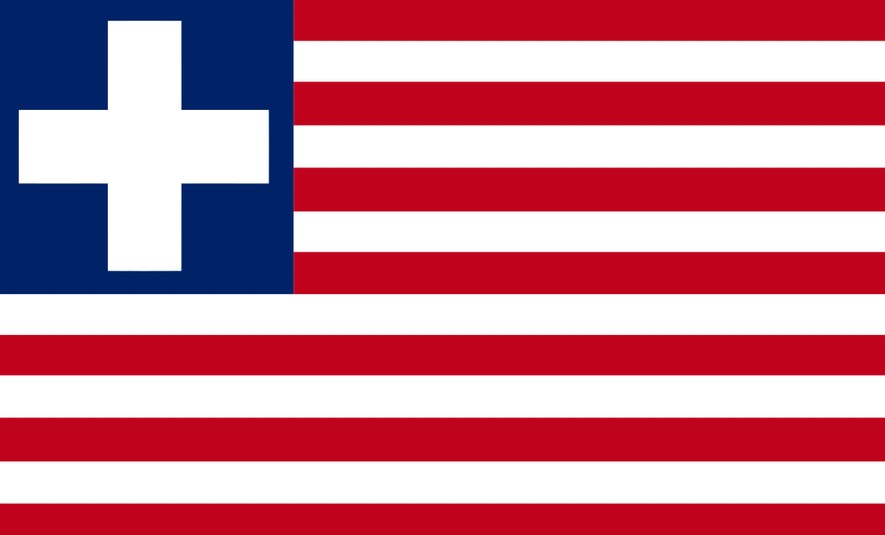
Liberian Flag between 1827-1847
Liberia becomes the first independent country in Africa and the one of the world’s eldest republic. Joseph Jenkins Roberts became the first black governor of the Commonwealth of Liberia and led Liberia to independence and nationhood on July 26, 1847. Joseph Jenkins Roberts becomes the first President of the Republic of Liberia. Great Britain and France welcomed quickly the new country; the US government recognized the new country only on October 10, 1862.
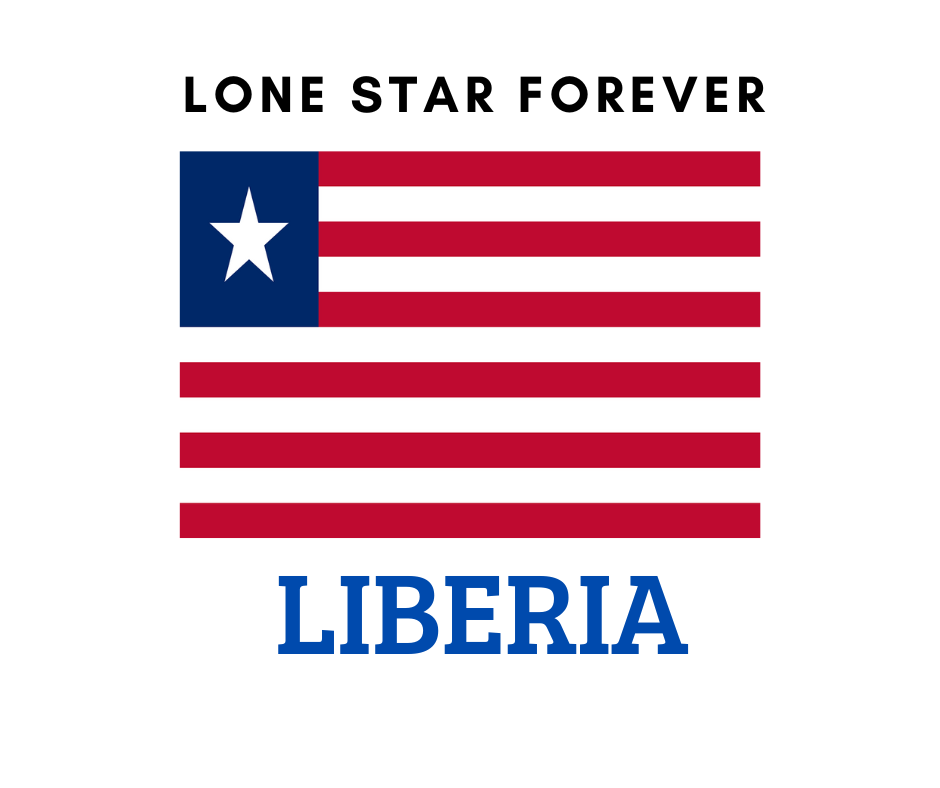
A nation is not formed and defined only by political and economic institutions and by Constitution. The national flags and anthems, are used to create bonds, motivate patriotic action, honor the efforts of citizens, and legitimate formal authority. National symbols, rituals and traditions must be created to form the nation’s identity. To fulfill this objective, the founder fathers of Liberia have adopted a new flag – LONE STAR – on August 24, 1847. The new Flag project a message and specifications about the structure of the government, about the country place in Africa and its remarkable destiny. FLAG DAY in Liberia takes place on the same day as the introduction of the new flag.
The new flag of Liberia largely maintained the same appearance as the original flag. However, the cross was replaced by a singular white star. The single star reflected Liberia’s pride in being the only independent Westernized state on the African continent and the liberation of former slaves, who came to colonize Liberia. The 13 stripes adopted from the flag of the United States were replaced by only 11 stripes. The 11 stripes represented each of the 11 men that signed Liberia’s Declaration of Independence. The colors red and white represents courage and moral virtue.
The Liberian flag was designed by a committee of seven women under the direction of Susannah Elizabeth Lewis. Due to the sole star on its design, the Liberian flag is sometimes referred to as the LONE STAR.
The FLAG DAY celebrates the unwavering patriotism of the Liberian people.
Liberian Flag is been criticized because it’s a copy of American Flag and do not represent any African visual element. It’s considered a copy of American Flag and do not represent any African or Indigenous visual element. He was adopted by the Colonist without African Indigenous people, present on the Malaguetta Pepper Coast at their arrival on these lands. For this, often, voices demand the rethinking of this collective national symbol.
Counties Flags reflect better the complexity of Liberian identity and of the Liberian heritage. All Liberia’s counties have their FLAG. Liberian President William V.S. Tubman consistently advocated for county flags during his presidency because he believed that county flags would help to unify the country and to end tensions between Americo-Liberians and indigenous groups within Liberia was prevalent. The flags are a representation of the unique qualities of each county while also paying homage to the country of Liberia as a unit.
Figure – Liberian stamps showing the county flags.
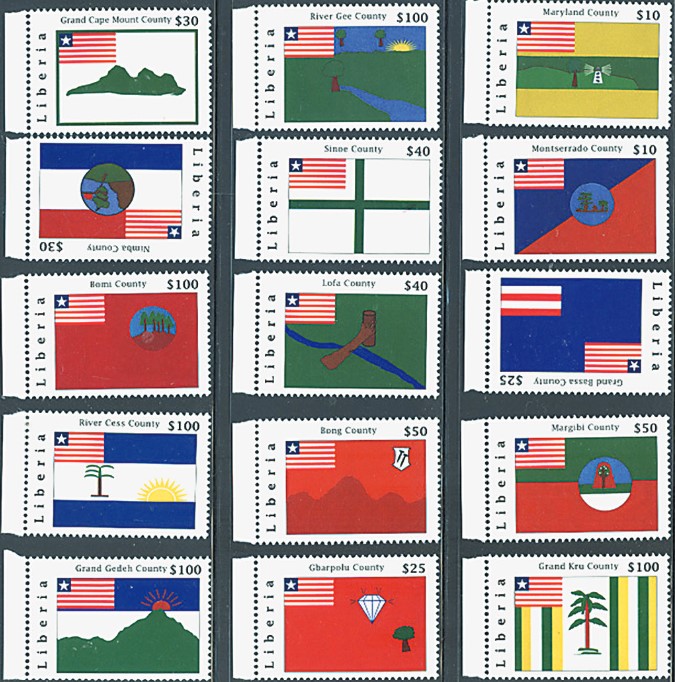
All Liberians should display our flag proudly, participate in community and Diaspora events, and take a moment to appreciate the freedom and opportunities that our national and our counties flags stands for. Flag Day is also an opportunity for Liberians to reflect on their own roles as responsible and active citizens to develop and promote Liberia.
Happy 2023 Flag Day!
Text : © Dr. Liana Maria URSA
Figure – Liberian stamps showing the county flags. (CaptainCrape post to Reddit r/vexill
